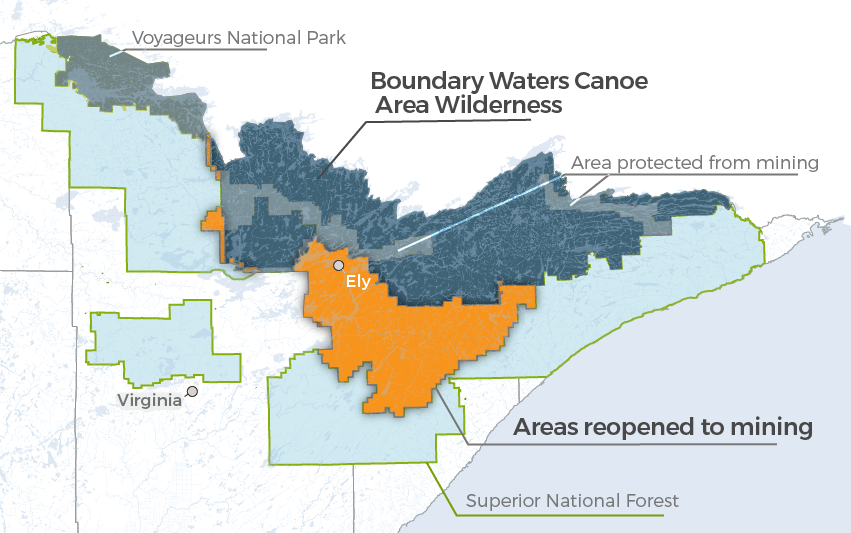Emmer, McCollum weigh in on opening forests near Boundary Waters to mining exploration

A ban on mining has been lifted around the Boundary Waters Canoe Area Wilderness in the Superior National Forest.
William Lager | MPR News
Go Deeper.
Create an account or log in to save stories.
Like this?
Thanks for liking this story! We have added it to a list of your favorite stories.


